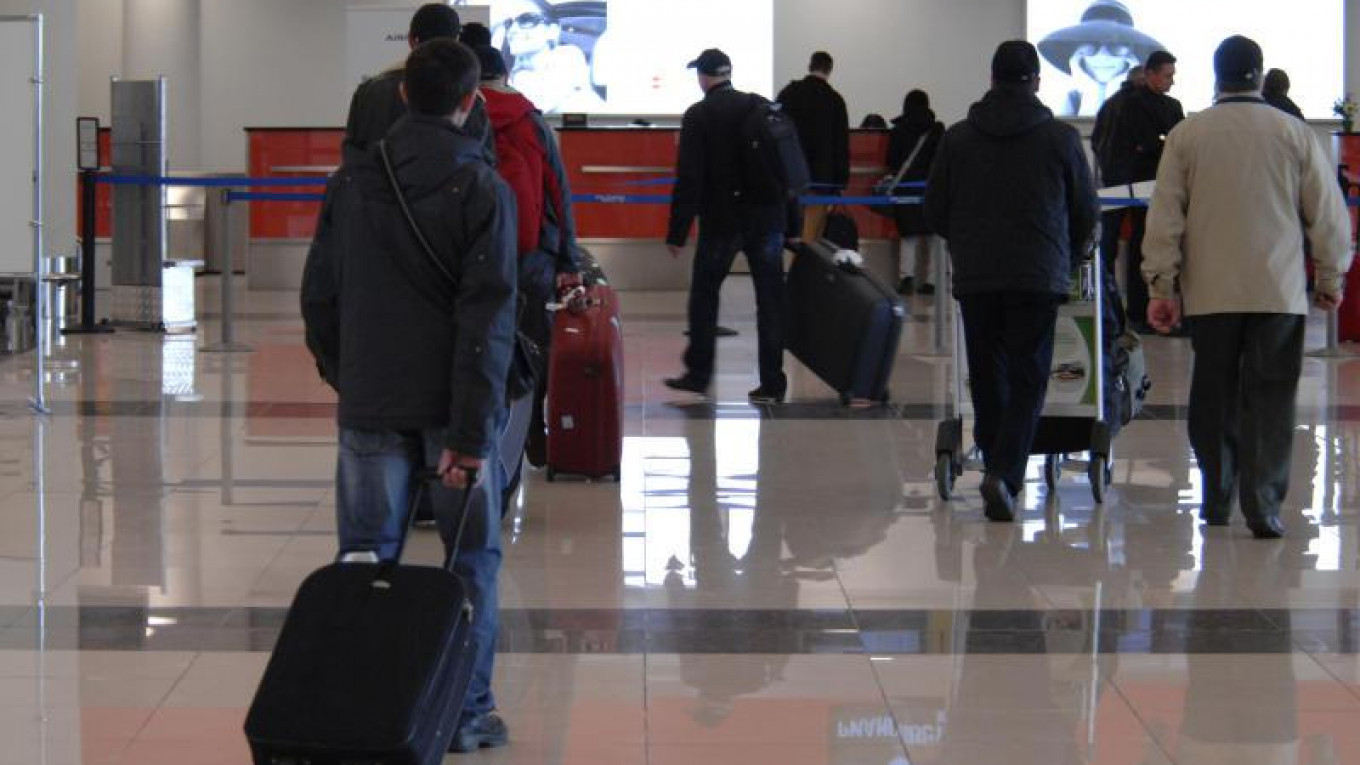After suffering a major brain drain in the 1990s, Russia is once again witnessing a rise in emigration. But whereas people back then left the country because of the crumbling economy, now they are leaving even as the government attempts to diversify it, writes Committee for Civil Initiatives (CCI) experts in their report “Emigration from Russia in the late 20th and early 21st centuries.”
For the already under-populated Russia, emigration poses an increasing threat due to the loss of demographic, social, economic, and intellectual capital. According to the State Statistics Service (SSS), approximately 4.5 million people moved out of Russia between 1989 and 2014. The smallest outflow occurred in 2009 when just 32,500 people emigrated, but the numbers began rising again after 2011, and in 2014 once again reached 1995 levels.
However, CCI expert Alexander Grebenyuk contends that those statistics are unreliable and incomplete. No one can count how many people left Russia for studies or on a work contract and simply never returned. For example, the SSS states that in 2014 4,780 Russians moved to Germany, although Germany records almost five times that number of Russian immigrants. For the U.S., the corresponding numbers are 1,937 and 9,079. But the greatest discrepancy concerns Spain, where the SSS says just 437 Russians emigrated in 2014, but Madrid reports the arrival of 8,286. Researchers say that, even by the most conservative estimates, State Statistics Service numbers bear tripling or quadrupling to reflect reality.
Most of the people who leave the country lived in border areas or the more prosperous regions. “Those people have potential to develop that they cannot realize here,” said Grebenyuk. Most of those who emigrate to the West are scholars, college students, and business people. The number of independently wealthy Russian émigrés is gradually increasing. They are typically former government officials, families of politicians, and members of the financial and bureaucratic elite.
Not only capital is leaving the country, but also businesses.
People leave Russia due to the volatile business environment, the lack of competition, widespread corruption, fears for personal safety and business assets, the lack of funding for science and education, and low salaries.
Among the social and political reasons for the exodus – sympathy for the political opposition, fears of persecution due to political views, the weakness of public institutions, and a lack of confidence in the law enforcement and judicial systems.
People leave because they want to improve their lives, while the ruling regime gets rid of discontents and avoids social unrest. “Everybody is happy,” the authors of the report write. However, the exodus deprives the country not only of the most active members of society, but “condemns the remainder to slower development.”
The upsurge in emigration since 2012 is a reaction to the results of parliamentary and presidential elections, according to Yabloko Party chairperson Emilia Slabunova. “We can expect a new wave of departures now,” she said. In order to halt that flow, Russia must democratize its political life and create favorable conditions for science and education, she argued.
The authorities should want to stop the departure of skilled workers and talented people, said Levada Center deputy director Alexei Grazhdankin. “It is necessary to create proper conditions for living and working. We should therefore take into account not only the interests of the majority, but also of other group. This also applies to domestic politics,” he said.
A Message from The Moscow Times:
Dear readers,
We are facing unprecedented challenges. Russia's Prosecutor General's Office has designated The Moscow Times as an "undesirable" organization, criminalizing our work and putting our staff at risk of prosecution. This follows our earlier unjust labeling as a "foreign agent."
These actions are direct attempts to silence independent journalism in Russia. The authorities claim our work "discredits the decisions of the Russian leadership." We see things differently: we strive to provide accurate, unbiased reporting on Russia.
We, the journalists of The Moscow Times, refuse to be silenced. But to continue our work, we need your help.
Your support, no matter how small, makes a world of difference. If you can, please support us monthly starting from just $2. It's quick to set up, and every contribution makes a significant impact.
By supporting The Moscow Times, you're defending open, independent journalism in the face of repression. Thank you for standing with us.
Remind me later.






